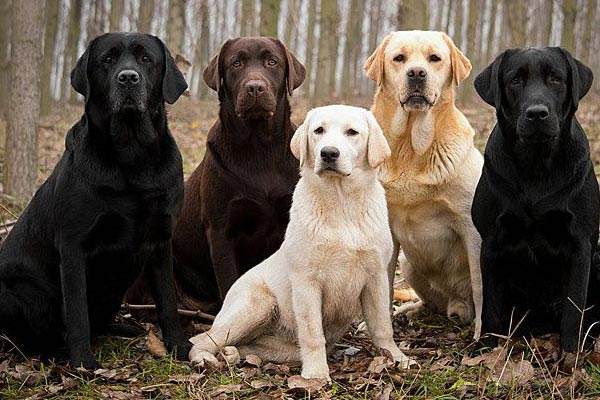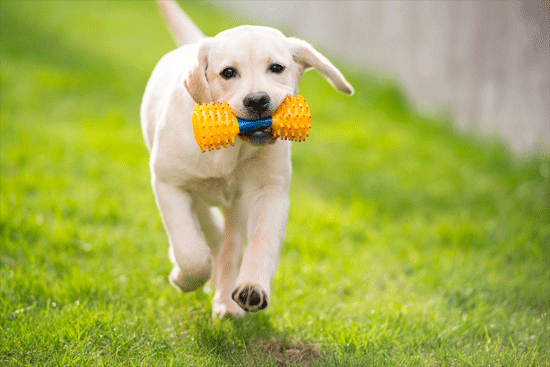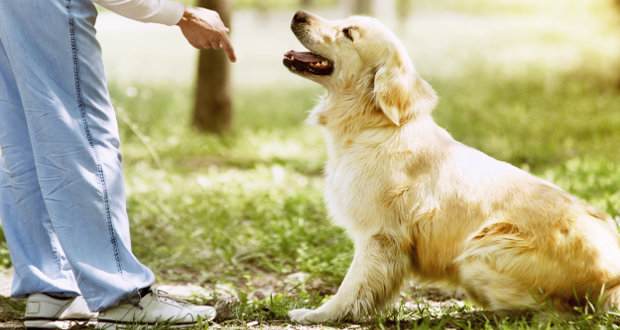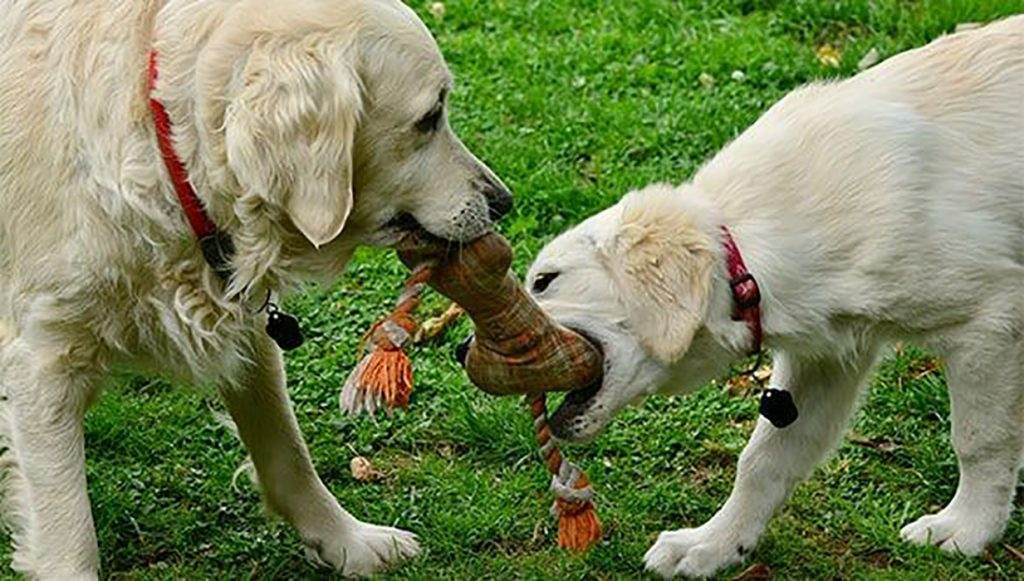Both decedents of the retriever dog breed family are cheerful in nature. They can easily make a great day for anyone who loves them. There are so many stories doing rounds on the internet how the Golden or Labrador Retriever dog brought about the positive changes to their owner’s lives.
The above is correct for the most part but then there are some situations that go out of control and the Golden retriever dog can show aggression. Again this is not their natural behavior.
Can a Golden Retriever be aggressive? Yes, they can. Golden Retrievers are social in nature and love to play games with their owners (especially the retrieval games). But the outside factors which I will discuss below can make them go aggressive. But then it’s all in the hands of the owner. With some precautions and little care, the Golden retriever dog can be so loving and attractive.
Statistics for the Golden Retriever Dog Breed in the USA
For 27 years in a row now, the Labrador Retriever stands out as America’s popular dog breed. The America Kennel Club estimates that well over 43.4 million homes have at least one dog. More than half of all homes own a Labrador Retriever breed altogether.
Fact Breakdown
- Life expectancy: 10 – 14 years
- Temperament: Gentle, trusting, agile, kind, even-tempered and intelligent.
- Weight: Male – 63.93-79.37 pounds; Female – 55.11-70.55 pounds
- Colors: Yellow, chocolate, and black
- Height: Male – 22.44-24.41 inches; Female – 21.65-23.62 inches
- Trivia: The Labrador Retriever is the world’s most popular dog breed by registration. It currently commands 191,988 registrations globally.
Aggression in Golden Retrievers vs. Other Breeds
Compared to the other breeds, the Labrador is a very gentle dog indeed. When given the necessary care and attention, the dog is generally gentle, quiet, and well-mannered. However, things might get out of hand if any of these ingredients are missing.
Indeed, this breed can turn aggressive when neglected or abused. Also, when left in absolute solitude for quite a long time, it may end up becoming wild and detrimental to the safety of those around it.
Are Golden Retrievers Really Aggressive?
NOT REALLY! As stated, this breed of dog is generally well-behaved. In fact, it is very rare to meet a wild Labrador Retriever. However, things might usually get out of hand sometimes. Some factors like prolonged solitude, poor breeding, and the existence of threats may trigger aggressive responses.
Even when the aggressiveness does arise, it is often short-lived. Further, these dogs are easier to calm and may never pose much harm even when agitated too much.
Why Do Golden Retrievers Get Aggressive?
Golden Retrievers may get aggressive due to a number of reasons and underlying issues. The following are the top reasons which underlie the emergence of such behaviors:
1. Fear
Fear is by far the leading cause of aggressiveness in these breeds. All animals instinctively develop aggression as a mechanism to fight back against an enemy; perceived or real. Some common causes of fear are new things, sudden noise outbursts, pitch darkness, and guests.
It mostly arises when the breed is not exposed to new ideas or properly socialized in its formative growth stages. That is why it is important to do so as part of your care regimen.
2. Poor Breeding
Studies have found some strains of dogs to be more predisposed to aggressive tendencies than others. If your retriever happens to possess any of these strains, it too is more likely to develop aggressive tendencies later on.
While seeking the best breed, try to ask the breeder the pertinent questions like the behavioral patterns of the dogs, illness history, and the character traits of the said dogs, to mention but a few.
3. Prolonged Solitude
Just like humans, animals, and dogs in particular, always want to socialize with their friends and peers alike. In the event that they are separated from the others, they tend to develop aggressive tendencies.
As a matter of fact, you are advised against leaving the retriever all alone for longer than 8 hours. Any more than that will make it develop hostility towards others around it, or even you. Try also to place it in the company of fellow dogs.

4. Hunger
Dogs do develop aggressive tendencies when they are hungry. That is why it is important to feed them well and adequately. Be sure to give yours a balanced diet and after comfortable durations of time, typically thrice daily.
While at it, be sensitive to the dietary requirements of your dog too. These vary with the age, level of physical activity, and any peculiar health issues your dog might be suffering.
5. Neglect
Lastly, neglect also plays a role in triggering the aggressive tendencies in these breeds. A retriever not only wants to be in the company of humans and other dogs but also be well taken care of. These include such issues as immunization, exercising, and adequate rest.
When a dog feels valued and appreciated, it reciprocates by behaving well. You should, therefore, strive to provide the same to your dog as you go about utilizing it.
Puppy Excitement vs. Dog Aggression
Many dog owners mistake the excitement of their puppies for aggressiveness. Nothing could, however, be further from the truth. Whenever a puppy beholds another puppy like it, it may usually develop some excitement. Such a site triggers some excitement as the puppy might want to get to the dog.
It might for instance bark and pull to be able to get to that dog. This notwithstanding though, some dogs may develop feelings of aggressiveness altogether. If and when the latter happens, the dogs become too wild to handle.
Acquired Bite Inhibition (ABI)
Acquired bite inhibition is a condition of a dog. It manifests in that inability of a dog to bite with inhibited force. Instead, it moderates the strength of its bite in such a way as not to interfere with the health status of the persons or objects it bites.
This condition is also called a soft mouth. The condition is developed mostly in childhood during social plays with other dogs of their kind. It is a pretty important thing to do. Such a training tames your dog and prevents it from inflicting wanton damages or problems to the humans and members of your households later.
You definitely want to incorporate this trait while bringing up your dog. To do this, you are advised to introduce your dog to other animals as early as is practically possible. Teach your dog to mingle and interact smoothly and fairly with the others as they play.
The skill is absolutely vital especially if you have many persons in your households or experience too many guests every now and then. It teaches your dog to be moderate to these persons and in so doing, minimizes the possible injuries they are more likely to sustain from it.

What Situations Can Bring Aggressiveness to a Golden Retriever?
Many factors can bring about aggressiveness to a Golden Retriever. The following is a list and accompanying explanations of those factors that are likely to give rise to this very trait:
1. Fear
Fear, as we have already explained before is the biggest cause of aggressiveness. Each animal is built with a reflex mechanism that requires it to fight back whenever it feels cornered or threatened. Dogs are certainly no exception to this universal rule.
When they are scared, feel cornered, or squeezed, they tend to be aggressive. Some of the most common causes of fear are loud noise, the presence of predators, environmental disasters and intrusion of guests.
2. Resource Guarding
Dogs have protective tendencies that are why they are used to beef up security. From time to time, they are more likely to exhibit ‘resource guarding’ behaviors. These are behaviors that are intended to convince others around them to stay away from some designated locations.
These could be areas that have toys, treats, food, favorite furniture, and other treasures. In most cases, they display this particular tendency after having received prior training or instruction to that effect. Any encroachment into the designated boundary may trigger an aggressive backlash.
3. Anxiety
Much like humans, dogs too are likely to suffer anxiety feelings. These feelings are mostly brought about by stressful situations like the absence of food, the existence of intense dangers, and insecurity. If and when these fundamental issues are not handled in time, they might spill over.
An anxious dog is generally socially withdrawn, lacks life, is inactive, and has almost no interest in what transpires around it. When provoked, however, it turns wild, aggressive, and arrogant. You want to stay away from such a dog by all means.

4. Social Aggression
Puppies are naturally playful, cheeky, and restless. They have the tendency to provoke their fellow puppies and inflict feelings of pain. This is what is called social aggression. It is intentional and is initiated by playful puppies.
While it is inevitable to a large extent, the issue is equally stressful and to some extent dangerous. You want to separate the puppies who are more predisposed to it from the larger breeds which are more likely to be victims of the behavior.
5. Leash Aggression
We have already explained that several dogs are generally active, agile, playful, and social. Any deliberate attempt to restrain their free movements and socialization is hence highly unwelcome. This often happens when the dogs are leashed.
In such a case, they feel restrained, uncomfortable, and frustrated. They hence tend to develop some aggressive tendencies which are intended to draw the attention of their owners to their plight. You want to release your dog out from time to time to counter this.
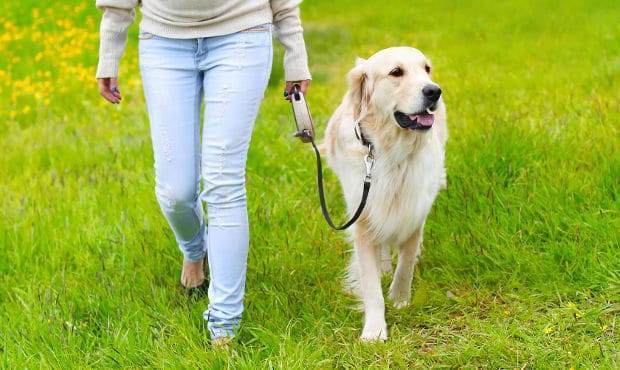
6. Protective
Aggressive tendencies in and of themselves are not bad. They do serve protective values especially when the dog feels constrained or attacked. With regard to this particular need, the trait is by all means highly welcome and justified.
There is hence no room for alarm at all. Instead, you want to encourage your dog to go on doing so. Rather, you should give it further training to enhance its protective traits and capability.
7. Frustration
Humans do feel upset when they are unable to change a situation, achieve a valued goal, or as a result of a huge disappointment. Dogs too have the same vein. Indeed, these canines also develop frustrations due to more or less similar root causes.
They do express these frustrations by means of aggressive tendencies. This is because they get easily agitated and fight off promptly too! Exercise some caution when handling and interacting with a dog of that kind.
8. Illness
Lastly comes the issue of illnesses. Whenever dogs are ill, they lose the vitality they once had when they were healthy. It is not uncommon for them to develop aggressive behaviors as a way of expressing their pains, sorrows, and weaknesses.
Just like as is the case with the frustrations above, you are yet again advised against playing or provoking such a dog. You won’t interact less with it but instead, furnish it with every drug and treatment it requires to restore its health to normalcy.
What Are Common Reasons for Aggression in Golden Retrievers?
Below are some of the common reasons for aggression in the Golden Retrievers:
1. Fearful Experiences in Certain Situations
Each time these dogs encounter some fearful experiences, they are more likely to develop aggressive tendencies. Examples of these situations are an extremely loud noise, the possible existence of a predator nearby, and a sudden change in environmental conditions.
Under such circumstances, it is better to remove the cause of the fear itself as no attempt to calm your dog will ever work.
2. Being Ignored by Their Owner
These dogs love being pampered, appreciated, and taken good care of. If you supply these ingredients, it will stay calm and well-behaved. The absence of any of these vital ingredients is however detrimental to the well-being of your dog.
Indeed, when they feel ignored, they will usually develop some hostile and aggressive tendencies thereafter. It is hence a good thing to devote some of your time to their care and accompaniment each day.
3. Cruelty
Nobody likes being treated badly; certainly not even dogs. Any cruel, harsh, or disparaging behavior normally has the tendency to triggering aggressive responses by your dog. Dogs, in particular, abhor harsh criticism and physical assaults.
Take particular note of that fact. With regard to this, you want to be certain that you exercise some gentleness, kindness, and due diligence as you handle it. In case it makes a mistake, do not overly criticize it.
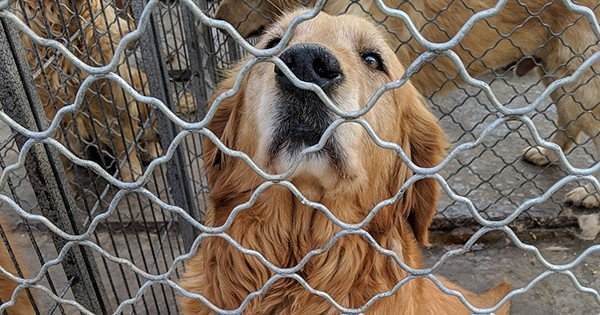
4. No Physical Activity
Prolonged solitude and leashing, as we have already mentioned, are averse to the well-being of your dog. That is because these breeds are generally active, playful and social. Any deliberate attempt to confine and deny them that physical activity will make them dull and aggressive.
Do see to it that you spare some time to play with them. If you cannot do this, at the very least, try and give them room to walk around and play in your courts.
5. Any Kind of Medical Condition
Any kind of medical condition which is physically strenuous may also contribute to the development of aggressive tendencies. When they fall sick, they lose the vitality they once had when they were well. This might make them upset and arrogant.
The end result of this arrangement is some aggressiveness. You want to take the earliest opportunity to reverse any medical condition your dog might be suffering from to avert this issue.
6. Suffering from Pain
Other than ordinary medical conditions, pains too do have a role to play in generating aggressive tendencies. Excessive pain is never that easy to bear. Dogs that undergo these pains will usually become hostile and very aggressive.
Yet again it is in your best interest to take the earliest opportunity to avert the same. Find the root cause of that pain and handle it appropriately. Some medications may also come in handy.
7. Incoming Threat or Danger
Any incoming threat or danger might also trigger an aggressive response. This breed, just like all the others have a right to defend themselves. They are therefore at liberty to use whichever weapon to ward off any risk they might confront.
Train yours though not to consider guests and humans as dangers. You do not want them to pose any danger to your visitors or other members of your households.
8. Not Socializing with Outside World
Lack of contact with the outside world also potentially brings about this issue of aggressiveness. When confined for a prolonged duration of time, dogs do lack the skill to mingle and interact with the ‘outside world.’
They also fail to distinguish between threats and friends. You have no option but to expose yours to the outside world and to train it diligently with regard to the distinctions stated above.
9. No Maintenance of a Routine
Everybody values conveniences. No one wants to operate on some confused and unfounded pattern or regime. The same case applies to dogs. They want to flow within a logical set of routines and patterns.
If you have no fixed set of patterns or activities, your dog will most likely develop agitations which might manifest in aggressive tendencies. It is certainly in your best interest to ward off this issue as much as possible.
10. Lack of Love and Appreciation
Golden retrievers, more so their puppies, demand excess love and appreciation. They want to be treated tenderly, carefully, and smoothly. In case these vital ingredients are lacking, it is not uncommon for them to develop hostilities towards those around them.
Getting around this issue is pretty simple. Just learn to cuddle, soothe, and pamper your dogs. Do spare some time each day also to spend it exclusively with your dog. This way, they will learn to be gentle and soft to people.

11. Seniority and Aging
With time, the dogs lose the playful and exciting traits of their puppy stages. They tend to be withdrawn, hostile, and arrogant. It is hence not uncommon for them to be aggressive to any visitor. Old age and seniority are largely inevitable. You can, however, slow down their aggression by training them to be gentle and kind.
References
- https://www.sciencedirect.com/science/article/pii/S155878780700264X
- https://dspace.library.uu.nl/bitstream/handle/1874/26152/SchilderAABS2007.pdf?sequence=1
Table of Contents
